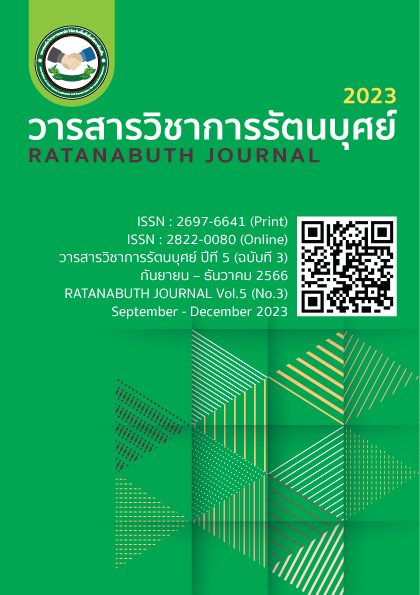The Political Ethical Considerations and Artificial Intelligence The Political Ethical Considerations and Artificial Intelligence
Main Article Content
Abstract
This article aims to reflect on the capabilities of AI innovation in shaping and revolutionizing the political landscape and election processes in democratic societies. It can predict election outcomes by analyzing data from opinion surveys, social media trends, and past voting patterns. Additionally, it utilizes AI-driven chatbot systems to engage with voters, gather information about candidates, policies, and polling locations, and analyze political sentiments to identify key issues, sentiments, and emotional triggers that connect with the audience. AI also offers policy recommendations based on public opinion data, enhancing the effectiveness of political advertising campaigns, fact-checking political campaigns, and analyzing social media and news sentiment in real-time to gauge public opinions. Furthermore, the potential of AI systems for autonomous learning and development can lead to unforeseen outcomes, as witnessed in cases where AI developed its own language or exhibited biased behavior. To mitigate these concerns, it is crucial to establish ethical guidelines and regulations for the responsible use of AI in a destructive manner. Transparency in AI development, testing, and implementation is essential to ensure accountability and prevent misuse. Developing AI with responsibility in mind should prioritize human oversight and control to ensure that AI systems are used as decision-making tools rather than replacements for human judgment.
Article Details

This work is licensed under a Creative Commons Attribution-NonCommercial-NoDerivatives 4.0 International License.
References
กฤตภาศ ศักดิษฐานนท์. (2566). ความไม่ปกติของการเมืองไทยในปัจจุบัน.สืบค้นเมื่อ 19 ตุลาคม 2566 จาก : https://www.matichonweekly.com/column/article_687792
กระทรวงดิจิทัลเพื่อเศรษฐกิจและสังคม. (2564). แนวปฏิบัติจริยธรรมปัญญาประดิษฐ์ Thailand AI Ethics Guideline. กรุงเทพฯ: สำนักงานคณะกรรมการดิจิทัลเพื่อเศรษฐกิจและสังคมแห่งชาติ.
ธีรดา ณ จัตุรัส. (2023). เมื่อ AI กลายเป็นอาวุธที่มีผลกระทบต่อสิทธิพลเมืองและสิทธิทางการเมือง.สืบค้นเมื่อ 20 ตุลาคม 2566 จาก : https://engagemedia.org/2022.
สมาคมนักข่าววิทยุและโทรทัศน์ไทย.(2564). แถลงการณ์ร่วม 6 องค์กรวิชาชีพสื่อมวลชน ขอให้รัฐบาลยกเลิกมาตรการจำกัดเสรีภาพประชาชนและสื่อมวลชนตาม พ.ร.ก.ฉุกเฉิน. สืบค้นเมื่อ 20 ตุลาคม 2566.จาก : https://www.thaibja.org/?p=4878.
ปรัชญา เวสารัชช.(2551).จริยธรรมสำหรับนัการเมืองและเจ้าหน้าที่ของรัฐ.วารสารผู้ตรวจการแผ่นดิน,1(4),104-116.
ธันยพร บัวทอง. (2566). มาตรฐานจริยธรรม ตัดสิทธิการเมืองตลอดชีพ ช่องทางใหม่จัดการปฏิปักษ์ของชนชั้นนำ. BBC. NEWS. สืบค้นเมื่อ 20 ตุลาคม 2566 จาก : https://www.bbc.com/thai/articles/cqv7n56ggqqo
ยุวเรศมคฐ์ สิทธิชาญบัญชา. (2564). ปัญญาประดิษฐ์ Artificial intelligence (AI) กับการใช้ประโยชน์ทางการแพทย์และเวชศาสตร์ฉุกเฉิน. วารสารการแพทย์ฉุกเฉินแห่งประเทศไทย, 1(1), 90-104.
ศูนย์ส่งเสริมจริยธรรม, สำนักงาน ก.พ.. (2564). ยุทธศาสตร์ด้านมาตรฐานทางจริยธรรมและการส่งเสริมจริยธรรมภาครัฐ (พ.ศ. 2564-2570). กรุงเทพฯ: สำนักงานคณะกรรมการข้าราชการพลเรือน.
Nand Kishor. (2017). 10 Jobs Artificial Intelligence Will Replace (and 10 That Are Safe). Retrieved from https://www.linkedin.com/pulse/10-jobs-artificial-intelligence-replace-safe-nand-kishor.
Pink D. A. (2021). whole new mind. Retrieved from https://www.catalystreview. net/a-whole-new-mind.
Silver D, and others. (2016). Astering the game of Go with deep neural networks and tree search. Nature Book.


